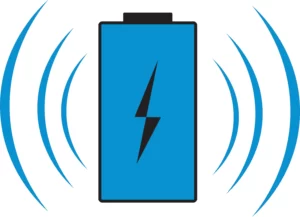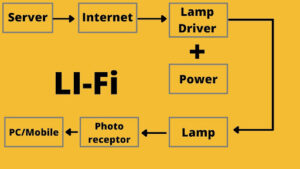
Why do Smartphones heat up
At present, almost
everyone has a phone. Maybe it’s a smartphone or a feature phone. And when
using this phone, almost everyone suffers from heating problems. Many people
think that his phone may have been damaged or there was a problem. But they may
not know that almost all phones heat up in their extreme condition. Not just a
phone, but any electrical or any electronic device will heat up when it is in use.
And that’s normal. Any device will be hot while working. If it is not hot while
using an electrical or electronic device, then it should be understood that
there is a problem.
everyone has a phone. Maybe it’s a smartphone or a feature phone. And when
using this phone, almost everyone suffers from heating problems. Many people
think that his phone may have been damaged or there was a problem. But they may
not know that almost all phones heat up in their extreme condition. Not just a
phone, but any electrical or any electronic device will heat up when it is in use.
And that’s normal. Any device will be hot while working. If it is not hot while
using an electrical or electronic device, then it should be understood that
there is a problem.
Reason: –
1) Processor: –
On a mobile phone or computer, the
processor is the part through which all the calculations are performed, and it
can also be said that the processor controls all the parts of the computer or
mobile phone. If you turn your phone or computer on standby, the processor will
still, work.
processor is the part through which all the calculations are performed, and it
can also be said that the processor controls all the parts of the computer or
mobile phone. If you turn your phone or computer on standby, the processor will
still, work.
The processor is
made of a semiconductor called silicon. Silicon is a semiconductor that can
easily release electrons. And when these silicon-built processors work, the
electrons are ejected from the silicon-built processor and move around inward.
And when they move, they push with each other as they move around. And the heat
generated by this push.
made of a semiconductor called silicon. Silicon is a semiconductor that can
easily release electrons. And when these silicon-built processors work, the
electrons are ejected from the silicon-built processor and move around inward.
And when they move, they push with each other as they move around. And the heat
generated by this push.
The higher the load
on the processor, the more the processor will work. That is, the electrons will
move around as quickly as possible. As a result, they push themselves too
loudly and generate too much heat.
on the processor, the more the processor will work. That is, the electrons will
move around as quickly as possible. As a result, they push themselves too
loudly and generate too much heat.
Smartphones are becoming thinner. As a result, the empty space inside the phone is decreasing. The processor is mounted on a heatsink, which allows the
processor to cool down. The heatsink is now attached to the phone body on
almost all phones so that the heat can disappear easily through the body of
the phone. As a result, we feel more heat. And we think the phone is
overheating.
processor to cool down. The heatsink is now attached to the phone body on
almost all phones so that the heat can disappear easily through the body of
the phone. As a result, we feel more heat. And we think the phone is
overheating.
2) Overload: – When the phone is overloaded, the
phone gets hot. When you do a simple
thing – call someone or listen to a song or watch a video, the phone does not
heat up. But when you do any load on the phone i.e. high definition video
recording on camera or playing a game, the phone gets hot. Because of the heavy
work, the processor has to do it very quickly.
phone gets hot. When you do a simple
thing – call someone or listen to a song or watch a video, the phone does not
heat up. But when you do any load on the phone i.e. high definition video
recording on camera or playing a game, the phone gets hot. Because of the heavy
work, the processor has to do it very quickly.
3) Weak signal: – If you are in a place where the
mobile network is very weak, then your phone will use more power to get enough
signal. And this is why your phone will be hot enough.
mobile network is very weak, then your phone will use more power to get enough
signal. And this is why your phone will be hot enough.
4) Battery Charging: – It has been said a while ago
that most smartphones around the present time are becoming very thin and due to
various advantages, the battery is going to be made bigger for them. As a result,
the heat transfer inside the phone is also reduced. We have learned in the
previous blog from the difference between lithium-ion and lithium-polymer
batteries that lithium-ion batteries overheat during charging and discharging.
And for this, the phone with lithium-ion gets a little too hot during charging.
And this is why we think the phone is heating up.
that most smartphones around the present time are becoming very thin and due to
various advantages, the battery is going to be made bigger for them. As a result,
the heat transfer inside the phone is also reduced. We have learned in the
previous blog from the difference between lithium-ion and lithium-polymer
batteries that lithium-ion batteries overheat during charging and discharging.
And for this, the phone with lithium-ion gets a little too hot during charging.
And this is why we think the phone is heating up.
5) Ambient temperature: – Temperature
also plays a role in increasing the temperature of the phone. If you live in a
place where the surrounding heat is high, then your phone will be a little
hotter when used.
also plays a role in increasing the temperature of the phone. If you live in a
place where the surrounding heat is high, then your phone will be a little
hotter when used.
However, even after
knowing so much, the question remains: What is the right temperature for a
phone? Any phone can get heated up to 50 degrees Celsius during overload. And
this is perfectly normal. But if this temperature is always visible, then there
must be a problem with the phone. However, every phone processor has an
algorithm on the processor that will slow down the processor itself when the
phone is overheated. Sometimes the phone is turned off due to an extra hit.
knowing so much, the question remains: What is the right temperature for a
phone? Any phone can get heated up to 50 degrees Celsius during overload. And
this is perfectly normal. But if this temperature is always visible, then there
must be a problem with the phone. However, every phone processor has an
algorithm on the processor that will slow down the processor itself when the
phone is overheated. Sometimes the phone is turned off due to an extra hit.






